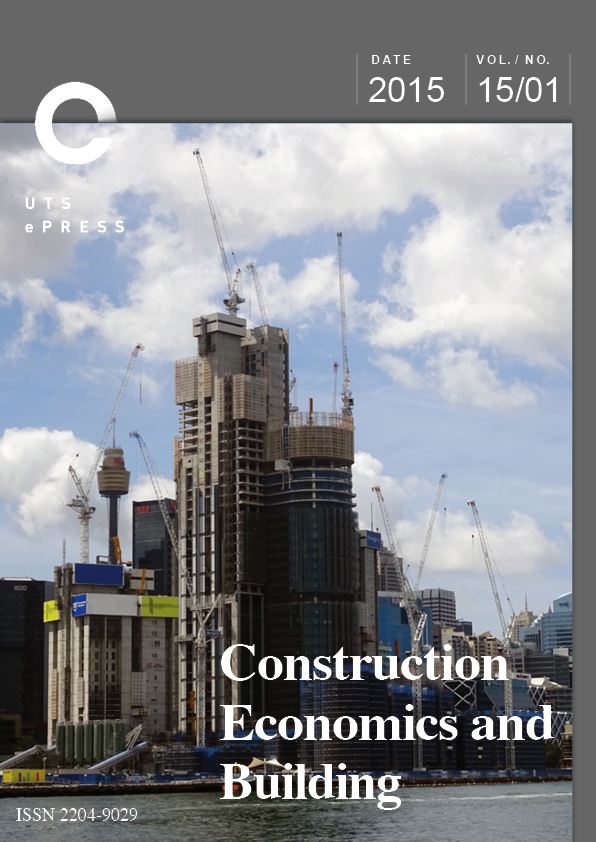Systematic Representation of Relationship Quality in Conflict and Dispute: for Construction Projects
Main Article Content
Abstract
The construction industry needs to move towards more relational procurement procedures to reduce extensive losses of value and avoid conflicts and disputes. Despite this, the actual conceptualization and assessment of relationships during conflict and dispute incidents seem to be neglected. Via a review of literature, relationship quality is suggested as a systematic framework for construction projects. General system theory is applied and a framework consistent of four layers respectively labelled as triggering, antecedent, moderation and outcome is suggested. Two different case studies are undertaken to represent the systematic framework; which verifies that changes in contracting circumstances and built environment culture can affect the identified layers.
Through system reliability theories a fault tree is derived to represent a systematic framework of relationship quality. The combinations of components, causes, and events for two case studies are mapped out through fault tree. By analysing the fault tree the combination of events that lead to relationship deterioration may be identified. Consequently the progression of simple events into failure is formulized and probabilities allocated. Accordingly the importance and the contribution of these events to failure become accessible. The ability to have such indications about relationship quality may help increase performance as well as sustainable procurement.
Paper Type: Research article
Article Details
Section
Authors who publish with this journal agree to the following terms:
a) Authors retain copyright and grant the journal right of first publication with the work simultaneously licensed under a Creative Commons Attribution License that allows others to share and adapt the work with an acknowledgement of the work's authorship and initial publication in this journal.
b) Authors are able to enter into separate, additional contractual arrangements for the non-exclusive distribution of the journal's published version of the work (e.g., post it to an institutional repository or publish it in a book), with an acknowledgement of its initial publication in this journal.
c) Authors are permitted and encouraged to post their work online (e.g., in institutional repositories or on their website) prior to and during the submission process, as it can lead to productive exchanges, as well as earlier and greater citation of published work (See The Open Access Citation Advantage Service). Where authors include such a work in an institutional repository or on their website (ie. a copy of a work which has been published in a UTS ePRESS journal, or a pre-print or post-print version of that work), we request that they include a statement that acknowledges the UTS ePRESS publication including the name of the journal, the volume number and a web-link to the journal item.
d) Authors should be aware that the Creative Commons Attribution (CC-BY) License permits readers to share (copy and redistribute the work in any medium or format) and adapt (remix, transform, and build upon the work) for any purpose, even commercially, provided they also give appropriate credit to the work, provide a link to the license, and indicate if changes were made. They may do these things in any reasonable manner, but not in any way that suggests you or your publisher endorses their use.
